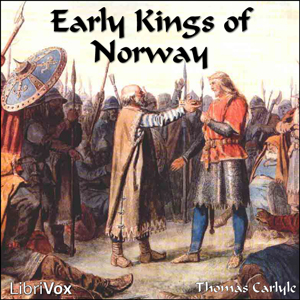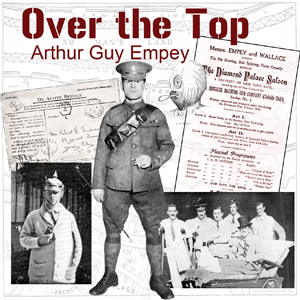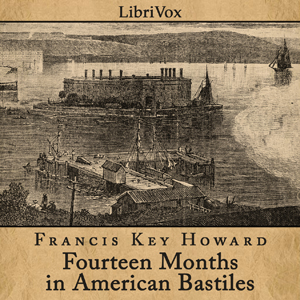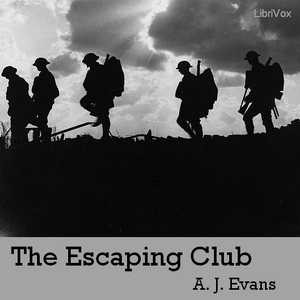"The Art of War is a Chinese military treatise written during the 6th century BC by Sun Tzu. Composed of 13 chapters, each of which is devoted to one aspect of warfare, it has long been praised as the definitive work on military strategies and tactics of its time. The Art of War is one of the oldest and most famous studies of strategy and has had a huge influence on both military planning and beyond. The Art of War has also been applied, with much success, to business and managerial strategies." (summary from Wikipedia)
7 episodes
The Art of War is a Chinese military treatise written during the 6th century BC by Sun Tzu. Composed of 13 chapters, each of which is devoted to one aspect of warfare, it has long been praised as the definitive work on military strategies and tactics of its time. (From Wikipedia.)
13 episodes
These pages record some of the adventures of the First South Carolina Volunteers, the first slave regiment mustered into the service of the United States during the late civil war. It was, indeed, the first colored regiment of any kind so mustered, except a portion of the troops raised by Major-General Butler at New Orleans. These scarcely belonged to the same class, however, being recruited from the free colored population of that city, a comparatively self-reliant and educated race. (From the text)
14 episodes
Alcott in 1862 served as a nurse in Georgetown, D.C during the Civil War. She wrote home what she observed there. Those harrowing and sometimes humorous letters compiled make up Hospital Sketches. (Summary by Aaron Elliott)
6 episodes
"The Icelanders, in their long winter, had a great habit of writing; and were, and still are, excellent in penmanship. It is to this fact, that any little history there is of the Norse Kings and their old tragedies, crimes and heroisms, is almost all due. The Icelanders, it seems, not only made beautiful letters on their paper or parchment, but were laudably observant and desirous of accuracy; and have left us such a collection of narratives (Sagas, literally "Says") as, for quantity and quality, is unexampled among rude nations. Snorro Sturleson's History of the Norse Kings is built out of these old Sagas; and has in it a great deal of poetic fire, . . . and deserves to be reckoned among the great history-books of the world. It is from these sources that the following rough notes of the early Norway Kings are hastily thrown together." (Excerpted from Thomas Carlyle's preface by Karen Merline)
10 episodes
Arthur Guy Empey was an American who responded to the sinking of the Lusitania by enlisting with the British Army to fight in France. His experiences in the trenches, including his ultimate wounding and convalescence, became this book. When published in 1917, it was a major hit and helped the recruiting effort when America entered the Great War.If you've heard of the horror of trench warfare in WWI and want to see it from below dirt level, Empey offers it all here.Also included is Empey's popular "Tommy's Dictionary of the Trenches" which humorously demistifies the slang used by the British soldier. (Summary by Mark F. Smith)
16 episodes
Ward Muir brings us into the heart of an English war hospital, describing scenes of cleanliness, triumph, order and sadness. Through the eyes of the orderly we get to see the processes that kept the wards running, and relive some tales from within the hospital walls. (Summary by Christine Blachford)
15 episodes
Formed during World War II, the United States Office of Strategic Services (OSS), was organized for special operations and intelligence gathering
and analysis. Included in its mission was the implementation of, and training of foreign forces in, propaganda, espionage, subversion, and sabotage. After the war, OSS functions were transferred to the newly formed Central Intelligence Agency (CIA).
This "Simple Sabotage Field Manual" was used by OSS agents in training "citizen-saboteurs" in methods for inciting and executing simple sabotage to thwart industry and other vital functions in Axis-occupied areas.
(Summary by James Christopher)
2 episodes
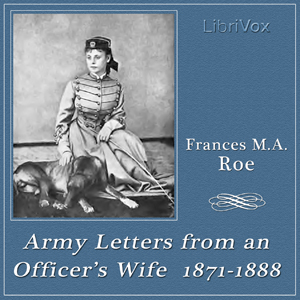
"There appeared from the bushes in front of me, and right in the path, two immense gray wolves . . . Rollo saw them and stopped instantly, giving deep sighs, preparing to snort, I knew . . . To give myself courage, I talked to the horse, slowly turning him around . . . when out of the bushes in front of us, there came a third wolf! The situation was not pleasant and without stopping to think, I said ‘Rollo, we must run him down - now do your best’ and taking a firm hold of the bridle, and bracing myself in the saddle, I struck the horse with my whip and gave an awful scream. . .” Thus, the spunky and resourceful Frances Roe recounts one of her many adventures. Frances was the young wife of a West Point Army officer, whose career took them both to frontier garrisons in what are now the states of Kansas, Colorado, Oklahoma, Utah, Montana, and Wyoming. Her letters home to her family in upstate New York, written between 1871 and 1888, and published in book form in 1909, are a fascinating chronicle of life on the frontier. Despite the grittiness of keeping house in tent-and-log-cabin quarters, Frances took to Western life, learning to shoot and ride (side saddle), fly fish for trout and hunt buffalo. Her letters, chatty and detailed, open windows on varied aspects of frontier and army life: army protocol (including the right of senior officers to bump subordinates out of their housing ); the Indian tribes--Arapahoe, Cheyenne, Apache, Kiowa (ceremonial visits from chiefs as well as Indian warfare); the black cavalry troops (at Camp Supply in Indian Territory); Chinese cooks (also Polish, Irish, and enlisted men doing kitchen duty). Her letters span years of rapid change in the West. They touch on the disappearance of the buffalo herds, the decline of the Indian tribes and the coming of the railroads. Even Yellowstone Park, established in 1872, gets a mention: “Now that the park can be reached by railroad, all of the generals, congressmen, and judges are seized with a desire to inspect it--in other words, it gives them a fine excuse for an outing at Uncle Sam’s expense.”Her emotions run deep when she writes: “I love army life here in the West, and I love all the things that it brings to me--the grand mountains, the plains, and the fine hunting.” But, Frances’ husband, Fayette Washington Roe, is eventually promoted to a headquarters desk job. Frances tries to evinse enthusiasm for town life: “since I cannot return to the plains, I might as well go to the city, where we will meet people of culture.” But even shopping for the necessary clothes distresses her: “Parasols have bothered me. I would forget to open them in the street, and would invariably leave them in the stores when shopping and then have to go about looking them up.” She then utters a timeless cry of urban angst: “It is the feeling of loneliness I mind here--of being lost and no one to search for me.” (written at a hotel in Omaha, Nebraska in August 1888) Anyone with nostalgia for or curiosity about the Old American West will certainly enjoy this book. (Summary by Sue Anderson)
22 episodes
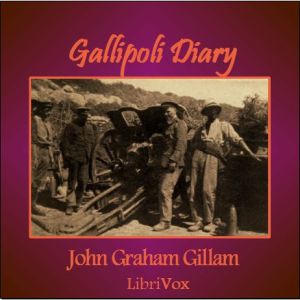
Major John Graham Gillam, British Supply Officer, wrote in his World War I Gallipoli Diary that when he sailed from England for the Dardanelles in March, 1915, he had visions of “trekking up the Gallipoli Peninsula with the Navy bombarding a way for us up the Straits and along the coast-line of the Sea of Marmora, until after a brief campaign we entered triumphantly Constantinople, there to meet the Russian Army, which would link up with ourselves to form part of a great chain encircling and throttling the Central Empires. . . We little appreciated the difficulties of the task,” he continues, in potent understatement.
Gillam’s charge was shepherding supplies--food and munitions--from beach depots to the trenches for a brigade of 4000 men. Since it was his first experience with “real war,” he decided to keep a diary, which he did from the day he landed at Gallipoli (April 25, 1915) until he was evacuated at the end of the campaign in January 1916. He aptly states in the preface to the published version of his diary: “those who desire to survey the whole amazing Gallipoli campaign in perspective must look elsewhere than in these pages. Their sole object was to record the personal impressions, feeling, and doings from day to day of one supply officer to a Division whose gallantry in that campaign well earned for it the epithet “Immortal.”
As the campaign intensifies, Gillam’s entries mature. Early on (May 30), a sample entry: “This afternoon I ride . . . to Morto Bay, and on the way have a delightful cross-country canter. I have difficulty, though, in making my mare jump trenches. She jumped hurdles at Warwick race-course like a bird.” A month later, on June 30, “The smell of dead bodies is at times almost unbearable in the trenches, and chloride of lime is thrown over them. I know of no more sickly smell than chloride of lime with the smell of a dead body blended in.” Another month, and respect for the Turks, and also for the rugged terrain of the peninsula is evident (August 29): “Behind me, purple Turkish hills, every point of which is held by the enemy. Then in between our line and the hills the scrubby low-lying country. . . I look at it hopelessly--for I know now, as we all do, that the conquest of the Peninsula is more than we can hope for. All that is left to us is to hang on day by day. . . Death in various forms walks with us always . . .”
Today, the Turkish Government maintains a war memorial and cemeteries at the Gallipoli Peninsula Historical National Park. Memories are very much alive there. Preserved trenches and the sad graves of many, many soldiers from both sides of the conflict are made especially poignant by the beauty of the setting-- the sea and high hills beyond.(Summary by Sue Anderson)
24 episodes
A Narrative of Personal Experiences of the Officer Commanding the 4th Field Ambulance, Australian Imperial Force . From his leaving Australia December 1914 till his evacuation due to illness after 5 months at Gallipoli. Read to remember those who were there. (Introduction by Annise)
5 episodes
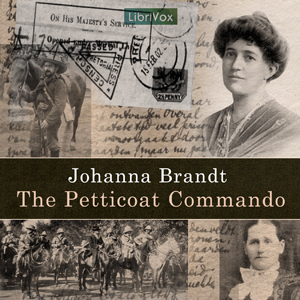
In introducing the English version of this book I venture to bespeak a welcome for it, not only for the light which it throws on some little-known incidents of the South African war, but also because of the keen personal interest of the events recorded. It is more than a history. It is a dramatic picture of the hopes and fears, the devotion and bitterness with which some patriotic women in Pretoria watched and, as far as they could, took part in the war which was slowly drawing to its conclusion on the veld outside.
I do not associate myself with the opinions expressed by the writer as to the causes of the war or the methods adopted to bring it to an end, or as to the policy which led to the Concentration Camps, and the causes of the terrible mortality which prevailed during the first months of their existence. On these matters many readers will hold different opinions from the writer, or will prefer to let judgment be in suspense and to look to the historian of the future for a final verdict. We are still too near the events to be impartial. But this book does not challenge or invite controversy. Fortunately for South Africa, most of us on both sides can now discuss the events of the war without bitterness and understand and respect the feelings of those who were most sharply divided by these events from ourselves.
The greater part of the narrative comes from a diary kept during the war with unusual fullness and vividness. The difficulty experienced by the writer of the diary in communicating to friends outside Pretoria information about what was passing inside, and in unburdening herself of the feelings roused in her by the events of the war, made the diary more than usually intimate. To understand fully many of the narratives which have been transferred from it to this book, it must be remembered that one is reading, not something written from memory years after the event, but rather the record of a conversation at the time, in which the diarist is describing the events as if to a friend who shares to the full all her own feelings and to whom she can speak without reserve.
Much has happened in the ten years which have passed since the end of the war. The country which was distracted by the conflicting ideals and interests of its different Governments and peoples has become the Union of South Africa. It is now one State. It remains that it should call forth a spirit of patriotism and nationality which will unite and not divide its people.(Introduction by Patrick Duncan)
42 episodes
Francis Key Howard recounts in this book his life as a political prisoner of the United States. He points out that he was held captive at the same location where his grandfather was inspired to write the national anthem about the "land of the free," which makes a very stunning contrast. The sufferings that were imposed on him by the Union forces had the effect of solidifying his determination to resist unjust governmental dictates. (Introduction by Katie Riley)
9 episodes
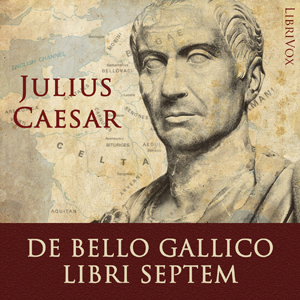
In this book the famous Gaius Julius Caesar himself describes the seven years of his war in Gaul.
When Caesar got proconsul of Gallia and Illyria in 58 B.C, the conquest of land in Gaul was an urgent need, both to improve his political standing and to calm his creditors in Rome. So Caesar claims his interest for a very large area already in the first sentence.
His steps and measures always appear clear and logical, but this simplicity is the result of a strict discipline in style. Caesar really chooses his words, and the list of standard words that he never or rarely uses, is astonishing. E.g. for "river" he only uses flumen and never fluvius or amnis. He avoids porro (furthermore), which would be no decided beginning of a sentence, and in his writings never occurs the word clades (the defeat), although this would normally be demanded by the context.
It is remarkable, that still today in all the lands of his conquest the word for "peace" is derived from latin pax (even basque "bake"). This peace is no friendship between equals, which is the idea behind the German word "Friede". Pax Romana implies subordination, and this concept was promoted by Caesar, first abroad and then at home.
(Summary by Marilianus)
25 episodes
Described by some as one of the greatest escape books published. The Escaping Club recounts Evans' escape to Switzerland from a supposedly "escape-proof" German prison camp during World War I. After repatriation and rejoining the war, Evans again finds himself captured, this time first by Arabs and then by Turks. He again manages to escape. A detailed look at the trials faced by Allied POWs during World War I. (Summary by Tom Weiss)
23 episodes
Joan of Arc is a folk heroine of France and a Roman Catholic saint. Claiming divine guidance, she led the French army to several important victories during the Hundred Years' War, which paved the way for the coronation of Charles VII of France. Captured by her enemies, she was sold to the English and put on trial for charges of "insubordination and heterodoxy". She was burned at the stake for heresy when she was 19 years old. Twenty-five years after her execution, an inquisitorial court examined the trial, pronounced her innocent, and declared her a martyr. Joan of Arc was beatified in 1909 and canonized in 1920. She is one of the patron saints of France. Most of what is known today of her story comes from the detailed court records of her trials. (Summary by timothyFR)
7 episodes
Perhaps the most famous work on the philosophy of war, and the effective use of military force, by a European author. (Summary by Timothy Ferguson)
37 episodes
This book, all of which has been written at the Front within sound of the German guns and for the most part within shell and rifle range, is an attempt to tell something of the manner of struggle that has gone on for months between the lines along the Western Front, and more especially of what lies behind and goes to the making of those curt and vague terms in the war communiqués. I think that our people at Home will be glad to know more, and ought to know more, of what these bald phrases may actually signify, when, in the other sense, we read 'between the lines.' (Summary by Boyd Cable)
15 episodes
Elizabeth Custer has penned an engaging portrait of 1870’s life on a U.S. cavalry post in the Dakotas, just before her husband and his troops met their tragic deaths in the Battle of the Little Big Horn. “Our life,” she writes, “was often as separate from the rest of the world as if we had been living on an island in the ocean.” Her portrait of her husband, General George Armstrong Custer is laudatory—his intellect, his love of dogs (he kept a hunting pack of 40 at the post); but, Boots and Saddles is more than just a memorial. She observes with keen insight, the varied persons, from Indian scouts, to enlisted men, to officer’s wives, who make up the army “family,” on the post. Her sympathetic story about the regimental laundress and midwife, with its sad ending, should take a place in the army’s history of “don’t ask, don’t tell.” (Summary by Sue Anderson)
29 episodes
Edith L. Cavell (1865–1915) was a British nurse who attended to soldiers of both sides during World War I, and helped some 200 Allied soldiers escape from German-occupied Belgium, for which she was arrested, court-martialed, found guilty of treason and sentenced to death. Attempts to mount an appeal failed, and she was summarily executed within hours of the sentence by a German firing squad. Publication of the news prompted spontaneous grief and worldwide condemnation. Many memorials were created around the world, including a statue adjacent to Trafalgar Square in London. --Adapted from Wikipedia
NOTE: After recording Chapter 7, the reader became aware that the subject's family pronounced the surname as it rhymes with "gravel", and he therefore pronounces it CAvel in subsequent chapters.
The first edition of this book was published in 1916. The final portion of Chapter 15 is from a later edition. ( Wikipedia page on Edith Cavell)
15 episodes
In 1914, at the age of 51, the novelist and poet May Sinclair volunteered to leave the comforts of England to go to the Western Front, joining the Munro Ambulance Corps ministering to wounded Belgian soldiers in Flanders. Her experiences in the Great War, brief and traumatizing as they were, permeated the prose and poetry she wrote after this time. Witness of great human pain and tragedy, Sinclair was in serious danger of her life on multiple occasions. This journal makes no attempt to be anything more than a journal: a lucid, simple, heart-breaking account of war at first hand. - Summary by Expatriate
18 episodes
This collection of poetry, with its companion prose collection, commemorates the outbreak of the First World War on 28th July 1914. Most of the poetry, all chosen by the readers, is in English, but the collection also includes poems in Dutch, French, German, Portuguese and Russian. Please note that some poems are still protected by copyright in countries which observe copyright laws based on the author's date of death. The majority of the poems were written during the war itself, but some poems have been included for their relevance in other ways. For more information about each poem, please see this document (PDF format), which also shows the poets' dates of death. (Summary by Ruth Golding)
59 episodes
"The Sword of Deborah" contains the reflections of a woman journalist visiting women working behind the lines in France during World War I. She writes: "I was glad to have seen all the different convoys I had, because no two had been to me alike, and to each I am indebted for a differing expression of the same vision, which is the vision splendid of a duty undertaken gladly and sustained with courage. From my first convoys -- the Fannies and the G.S.V.A.D.'s -- I got the wonderful facts of it, at the V.A.D. Convoy at E---- I caught that side of it which I as most glad of all to encounter, and at the V.A.D. Convoy at T----- I found that delightful spirit of sheer joy in danger which is too precious to be allowed to die out of the world just because there happens to be, at present, such a great deal too much danger let loose upon it." (Summary by MaryAnn)
7 episodes
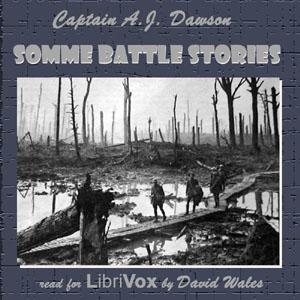
Stories of World War I warfare, published in 1916 in the midst of the war. (That's why names of persons and units are literally "blanked" out.) Alec John Dawson (1872 - 1951), generally known as A. J. Dawson (pseudonyms Major Dawson, Howard Kerr, Nicholas Freydon) was an English author, traveller and novelist. During World War I he attained the rank of Major, and was awarded the MBE and Croix de Guerre in recognition of his work as a military propagandist, a work the listener may want to keep in mind. (Terminology note: "Boche" means the Germans, singular or plural; "Blighty" means hospitalization in England; "The Push" means fighting in the Somme offensive.)
The Battle of the Somme (French: Bataille de la Somme, German: Schlacht an der Somme), also known as the Somme Offensive, was a battle of the First World War fought by the armies of the British and French empires against the German Empire. It took place between 1 July and 18 November 1916 on either side of the River Somme in France. The battle was one of the largest of World War I, in which more than 1,000,000 men were wounded or killed, making it one of humanity's bloodiest battles.... 1 July 1916 was also the worst day in the history of British Army, which had c. 60,000 casualties,... The British Army on the Somme was a mixture of the remains of the pre-war regular army, Territorial Force and the Kitchener Army which was composed of Pals battalions, recruited from the same places and occupations, whose losses had a profound social impact in Britain.... The Battle of the Somme has been called the beginning of modern all-arms warfare, during which Kitchener's Army learned to fight the mass-industrial war, which the continental armies had been engaged in for two years. This view sees the British contribution to the battle as part of a coalition war and part of a process, which took the strategic initiative from the German Army and caused it irreparable damage, leading to its collapse in late 1918. (Wikipedia, Battle Of The Somme) ( Wikipedia and david wales)
20 episodes
The Art of War is an ancient Chinese military treatise attributed to Sun Tzu, a high-ranking military general, strategist and tactician. The text is composed of 13 chapters, each devoted to one aspect of warfare. It is commonly considered to be the definitive work on military strategy and tactics of its time. It has been the most famous and influential of China's Seven Military Classics, and "for the last two thousand years it remained the most important military treatise in Asia, where even the common people knew it by name." It has had an influence on Eastern and Western military thinking, business tactics, legal strategy and beyond. - Summary by Wikipedia
2 episodes
This collection of non-fiction and fiction, with its companion poetry collection, commemorates the outbreak of the First World War on 28th July 1914. The majority of the items, all chosen by the readers, are in English, but the collection also includes pieces in Dutch, French, German and Ukrainian. Please note that some works are still protected by copyright in countries which observe copyright laws based on the author's date of death. Most items were written during or shortly after the war, but one or two have been included for their relevance in other ways. For more information about each piece, please see this document (PDF format), which also shows the authors' dates of death. (Summary by Ruth Golding)
55 episodes
“… this war was not one of mere destruction. It set men to thinking as they had never thought before. It intensified their inventive faculties, and as a result, the world is richer in many ways. Lessons of thrift and economy have been taught us. Manufacturers have learned the value of standardization. The business man has gained an appreciation of scientific research. The whole story is too big to be contained within the covers of a single book, but I have selected the more important and interesting inventions and have endeavored to describe them in simple language for the benefit of the reader who is not technically trained.” Bond was the sometime editor of Scientific American magazine.
( Book Preface, David Wales)
17 episodes
The Influence of Sea Power Upon History: 1660–1783 is a history of naval warfare written in 1890 by Alfred Thayer Mahan. It details the role of sea power during the seventeenth and eighteenth centuries, and discusses the various factors needed to support and achieve sea power, with emphasis on having the largest and most powerful fleet. Scholars consider it the single most influential book in naval strategy. - Summary by Wikipedia
30 episodes
This little gem of a book contains twelve poems about World War I. There is more to it than its intrinsic value as verse. Edward Elgar (1857-1934) set three of the poems (The Fourth Of August, To Women, For The Fallen) in his cantata The Spirit of England (1915-1917). Since its composing and musical setting, For The Fallen has held an honored place in every November 11th Remembrance Day for Britain and the Commonwealth (Memorial Day for Americans). Moved by the opening of the Great War and the already high number of casualties of the British Expeditionary Force, in 1914 Laurence Binyon wrote his For the Fallen, with its Ode of Remembrance, as he was visiting the cliffs on the north Cornwall coast,… The third and fourth verses of the poem (although often just the fourth) have so been claimed as a tribute to all casualties of war, regardless of nation.
- Summary by Wikipedia and david wales
12 episodes
Better known today for his influential fantasy writings, Lord Dunsany also wrote a number of sketches during World War One. This compilation of essays written from time spent in France in 1916. Much more thoughtful and melancholy than the pieces written for the War Office earlier in the war. - Summary by Alan Winterrowd
13 episodes

This is a popular narrative history of the world's greatest war. Written frankly from the viewpoint of the United States and the Allies, it visualizes the bloodiest and most destructive conflict of all the ages from its remote causes to its glorious conclusion and beneficent results.Two ideals have been before us in the preparation of this necessary work. These are simplicity and thoroughness. It is of no avail to describe the greatest of human events if the description is so confused that the reader loses interest. Thoroughness is an historical essential beyond price. So it is that official documents prepared in many instances upon the field of battle, and others taken from the files of the governments at war, are the basis of this work. All that has gone into war making, into the regeneration of the world, are herein set forth with historical particularity. The stark horrors of Belgium, the blighting terrors of chemical warfare, the governmental restrictions placed upon hundreds of millions of civilians, the war sacrifices falling upon all the civilized peoples of earth, are in these pages. (From the Forward)
60 episodes
This second volume of the biography of Lord Cochrane deals with his fall from grace, imprisonment for debt, loss of honours, and attempts to clear his name. It has had a marked influence on naval fiction, most obviously on some of the novels by Patrick O'Brian. - Summary by Timothy Ferguson
24 episodes
This is a posthumous collection of essays by Randolph Bourne. Many originally appeared in the journal "The Seven Arts," before the controversial end to its run. Also included is the unfinished manuscript of "The State," the book Bourne worked on until his tragic death in December, 1918, at the hands of the Spanish flu pandemic. In the words of the book's editor, poet James Oppenheim, "We have nothing else like this book in America. It is the only living record of the suppressed minority, and is, as so often the case, the prophecy of that minority's final triumph." - Summary by Ben Adams
10 episodes
One of the first volumes dedicated to systematized medical treatment of soldiers in modern warfare, including a chapter on specific care for airmen, by British doctors who served on the front lines of WWI. Graphic descriptions (and images in the source book) of war wounds are not for the weak of heart. - Summary by BellonaTimes
40 episodes
Volume Four covers the battle of Lutzen (November, 1633) to the death of Wallenstein (February, 1634) focusing on the reaction of the Protestant forces following the death of Gustavus Adolphus at Lutzen, and Wallenstein's actions leading to his death. - Summary by Alan Winterrowd
4 episodes
From the Preface: The formation of a Battalion of Jews for service in the British Army is an event without precedent in our annals, and the part played by such a unique unit is assured of a niche in history owing to the fact that it fought in Palestine, not only for the British cause, but also for the Restoration of the Jewish people to the Promised Land. - Summary by J. H. Patterson
37 episodes
Cardinal Thomas Wolsey (1473-1530) will always be remembered as the Lord Chancellor who fell from power when he failed to obtain the annulment of King Henry VIII's marriage to Catherine of Aragon. The eminent British historian, Mandell Creighton, writes that Wolsey was branded by Tudor historians as "the minion of the Pope, and the upholder of a foreign despotism." But the publication in the nineteenth century of the mass of documents relating to the reign of Henry VIII made possible a truer assessment of the visionary schemes of the great cardinal and of his underlying patriotism. In his patient diplomacy and careful construction of alliances, the author concludes that "at a great crisis of European history he impressed England with a sense of her own importance and secured for her a leading position in European affairs." - Summary by Pamela Nagami
14 episodes
"The Princess Elizabeth of England was born at Greenwich, between three and four of the afternoon of September 7, 1533. Her birth was a matter of small rejoicing to her parents, who were sorely disappointed that their first-born was not a boy." So begins this short, but stirring biography by the British historian, Mandell Creighton, of the magnificent last monarch of the Tudor dynasty. We see Elizabeth in constant peril during the turbulent and ineffectual reigns of Edward VI and Mary. At her accession, her country is little better than an appendage of the Spanish state. By the end of her reign, England has become a major power. Creighton writes that, "Elizabeth's imperishable claim to greatness lies in her instinctive sympathy with her people. She felt, rather than understood, the possibilities which lay before England, and she set herself to the task of slowly exhibiting, and impressing them on the national mind." (Pamela Nagami)
16 episodes
Hard Tack and Coffee: The Unwritten Story of Army Life (1887) is a memoir by John D. Billings, a veteran of the 10th Massachusetts Volunteer Light Artillery Battery in the American Civil War. Hard Tack and Coffee is not about battles, but rather about how the common Union soldiers of the Civil War lived in camp and on the march. It covers the details of regular soldier life, including enlisting, how soldiers were sheltered, Army rations, offenses and punishments, a day in camp, boxes from home, foraging , the army mule, hospitals and ambulances, clothing, breaking camp and marching, and other similar topics. Billings has been described as a skillful writer, both humorous and informative. The historian Henry Steele Commager called the work "one of the most entertaining of all civil war books". - Summary by Wikipedia
21 episodes
Anne Stuart (1665-1714), Queen of England, Scotland, and Ireland, succeeded William III to the throne in 1702. She was the daughter of the deposed Catholic king, James II, but was of the Anglican faith. Liberal, Irish member of Parliament, Justin McCarthy, writing in 1902, creates in sparkling, uncluttered prose a panoramic canvas of Anne and her times. In the first of the two volumes, the brilliant commander, the Duke of Marlborough, defeats the French and Bavarians at the Battle of Blenheim, while the flagship of the admiral of the fleet, Sir Cloudesley Shovell, strikes the rocks near the Isles of Scilly and is lost with all eight hundred hands. We are at street level in rowdy London with its aristocratic bully boys, the Mohocks, its coffee houses, and its theaters. We meet the great Tories, Harley and Bolingbroke, and encounter the satiric spirit who haunts it all, Jonathan Swift. (Pamela Nagami)
20 episodes
"This Convention represents the fourth updated version of the Geneva Convention on the wounded and sick following those adopted in 1864, 1906 and 1929. It contains 64 articles. These provide protection for the wounded and sick, but also for medical and religious personnel, medical units and medical transports. The Convention also recognizes the distinctive emblems. It has two annexes containing a draft agreement relating to hospital zones and a model identity card for medical and religious personnel." - Summary by International Committee of the Red Cross
Please note, this recording DOESN'T include the 3 protocols.
30 episodes
William Ewart Gladstone (1809-1898), four times Prime Minister of Great Britain, dominated the Liberal Party for thirty years, but ultimately divided it over the issue of Irish Home Rule, which he unsuccessfully championed. He brought to parliamentary politics a moral fervor which made him the personification of the Victorian Age, but which also challenged the complacency of its imperialistic assumptions. In this 1897 biography, the Liberal Irish member of Parliament, Justin McCarthy, presents a Gladstone still vividly remembered, rising to speak in the House of Commons among a host of illustrious contemporaries, including Benjamin Disraeli, Lord Palmerston, and Sir Robert Peel, or expounding his views to a bored and baffled Queen Victoria, who called him a "ridiculous, wild, and incomprehensible old fanatic." (Pamela Nagami)
34 episodes
Edward I of England (1239-1307) will always be remembered as the "Hammer of the Scots" who condemned William Wallace (Braveheart) to a traitor's death in 1297. But Edward was one of England's greatest statesman-kings. In this short biography the British historian, Thomas Frederick Tout writes of Edward that he was "a man of unusual and commanding height," lean and powerful, who, despite a slight stammer, was able to "speak with a simple and natural eloquence that often moved his susceptible auditors to tears." Edward conquered Wales, reformed the legal and judicial systems of England, curbed the power of the church, and through conquest and diplomacy managed to subdue the ambitions of the wily French King, Philip the Fair.
19 episodes
In the American Civil War the Union victory in the ten-month campaign for the city of Petersburg, Virginia (June 1864-March 1865), led directly to the surrender of the Confederacy within two weeks. This 1970 National Park Service booklet tells the story of the campaign. It focuses on the meaning of the campaign and the experience of the soldiers of both sides, with a minimum of references to military units. The listener to this Librivox recording may want to view the printed booklet for excellent maps and revealing photographs. - Summary by david wales
5 episodes

In 1813, the year that he was appointed Poet Laureate, Robert Southey published "The Life of Nelson". Horatio, Lord Viscount Nelson was Britain's greatest Naval hero who had been killed during the Battle of Trafalgar in 1805 during which he had issued that famous message to the fleet; "England expects that every man will do his duty."In a preface to the first edition, Southey wrote: "Many Lives of Nelson have been written; one is yet wanting, clear and concise enough to become a manual for the young sailor, which he may carry about with him till he has treasured it up for example in his memory and in his heart. In attempting such a work I shall write the eulogy of our great national hero, for the best eulogy of NELSON is the faithful history of his actions, and the best history must be that which shall relate them most perspicuously."
Nelson's example as a seaman was considered so exemplary and Southey's biography so laudable that the American Government gave a copy of the book to every officer and seaman in their fleet. (Summary by Noel Badrian)
23 episodes
This is a short life of Henry John Temple (1784-1865), Third Viscount Palmerston, Great Britain's affable, able, and always available Foreign Secretary, Home Secretary, and Prime Minister. Sanders writes that by 1841 Palmerston "had raised the prestige of England throughout Europe to a height which it had not occupied since Waterloo. He created Belgium, saved Portugal and Spain from absolutism, rescued Turkey from Russia, and the highway to India from France." (Pamela Nagami)
30 episodes

Anne Stuart (1665-1714), Queen of England, Scotland, and Ireland, succeeded William III to the throne in 1702. She was the daughter of the deposed Catholic king, James II, but was of the Anglican faith. Liberal, Irish member of Parliament, Justin McCarthy, writing in 1902, creates in sparkling, uncluttered prose a panoramic canvas of Anne and her times. In the second of the two volumes, McCarthy describes the Battle of Malplaquet, where Marlborough meets the French in "a contest of hand-to-hand fighting on a gigantic scale." Then follows "the darkest chapter in the record of Queen Anne's reign," as a parliamentary conspiracy, headed by Bolingbroke, topples Marlborough from power. From Parliament we move to London's coffee houses where Londoners gather to read the "Spectator" and where, in 1714, they anxiously await news of the dying Queen. Scarcely has George I ascended his throne, when Jacobites at home and abroad begin to plot a Stuart Restoration under the son of the ousted James. (Pamela Nagami)
20 episodes

In 1915 Oscar Hornung, son of the famous author E W Hornung, was killed at Ypres after less than a year as a soldier in Flanders. He was only 20. Two years later E W Hornung volunteered to help run one of the YMCA canteens close behind the front line.
This book is Hornung’s own account of the time he spent in Northern France: first helping in a canteen, then running a library for the enlisted men. He wanted to be near the place where his son died, to meet the young soldiers who were fighting the war, and to make their lives a little better. More than anything, Hornung wanted to believe there was a greater purpose to he war: in his descriptions soldiers are always heroes, the struggles just, and leaders wise and kind.
But whatever his motivations and blind-spots, Hornung brought all his skills as a highly experienced novelist to the task of telling his story. We feel we are there with him while he talks to the soldiers, travels to the front line to serve cocoa and biscuits under fire, and finally sets up a lending library only a couple of miles from No Man’s Land. Even Sir Arthur Conan Doyle (a former friend who reported Hornung to the authorities for promoting pacifism) grudgingly admitted that this book contains some of the best descriptions of life on the Western Front.
(The cover shows the western front as it passed trough the town of Arras in 1918 at the time the author would have known it)
(Summary by Clive Catterall)
13 episodes
"England Since Waterloo" by Sir John Arthur Ransome Marriott (1859-1945) was first published in 1913 and went through many editions. The author taught history at Worcester College, Oxford for thirty-six years and served as a Conservative member of Parliament for fifteen. "England Since Waterloo" begins with the defeat of Napoleon who, Marriott writes, was impotent "to assail English power at sea, foiled in his attempt to ruin her commerce...overwhelmed under Russian snows, and finally conquered by the genius of Wellington." He portrays the people and the events of nineteenth century Britain, ending his narrative with the death of Queen Victoria in 1901. We see the "ascendancy of Science and Industry...the advent of Democracy...and the extension of Empire" in this panoramic survey of reform at home and imperialism abroad. - Summary by Pamela Nagami
52 episodes
The contents of these volumes of 'Celebrated Crimes', as well as the motives which led to their inception, are unique. They are a series of stories based upon historical records, from the pen of Alexandre Dumas, pere, when he was not "the elder," nor yet the author of D'Artagnan or Monte Cristo, but was a rising young dramatist and a lion in the literary set and world of fashion.
The third volume is devoted to the story of Mary Queen of Scots, another woman who suffered a violent death, and around whose name an endless controversy has waged. Dumas goes carefully into the dubious episodes of her stormy career, but does not allow these to blind his sympathy for her fate. Mary, it should be remembered, was closely allied to France by education and marriage, and the French never forgave Elizabeth the part she played in the tragedy. ( From the introduction)
11 episodes




